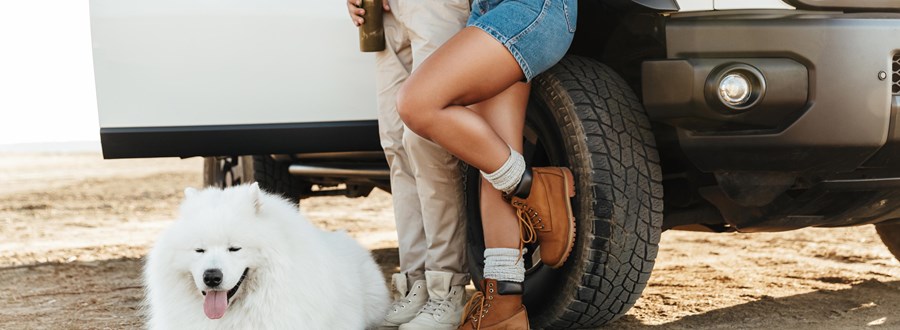Selling your car? Things to check off first.
Here are six things you need to check off before you sell your car.

Whether you’re trading up or looking to downsize, one thing’s for sure; selling your car can be a real headache. To help you out, we’ve put together a checklist of all the things you’ll need to consider.
It's important to understand that every state and territory has different laws regarding vehicle sales. The below checklist is for only those who are looking to sell their car in Queensland.
1. Decide between selling privately or to a dealer
The first thing you’ll need to do is decide to whom you’re going to sell your precious wheels. It’s essentially a case of profit vs. convenience. Selling your car privately is likely to net you a better price for your vehicle, but can take a fair bit of legwork (more on that later). On the other hand, trading in or selling to a dealership can make life much easier, but you’re probably going to have to compromise on price. It’s just a matter of how much you need from the sale, and how much spare time you have on your hands!
2. Choose your price
Spend some time looking through online ads and second-hand car dealerships, and you should be able to get a pretty good ballpark figure for your make and model.
If you need some more guidance, there are a number of price calculators out there, like this great one from Carsales.
3. Get a road worthy safety certificate
To limit the number of unsafe cars being sold, sellers are legally required to obtain a safety certificate prior to listing a registered vehicle for sale. To do this, you’ll have to go to an Approved Inspection Station (AIS) – you can find your nearest one here.
A safety certificate will set you back $82.85 from 1 July 2018, and covers a range of checks of basic safety standards, including things like lights, tyres, brake pads, steering and suspension. It may cost more to obtain a safety certificate from a mobile Approved Inspection Station (AIS).
This is an important bit – it’s essential to get a safety certificate and display it in your car window before you put your car up for sale. You can face on-the-spot fines if you attempt to sell a vehicle without a safety certificate, so get this sorted and in your window as soon as you can.
There are two exceptions to the safety certificate rule – if you’re selling a registered car to a dealership, or if you’re selling an unregistered vehicle. If you’re selling a registered car to a dealership, you don’t need one at all as the dealer will check over the vehicle, but if you’re looking to sell your car without registration, you might need to look into getting a permit to move an unregistered vehicle.
4. Advertise
Carsales? Gumtree? Facebook Marketplace? In a newspaper?!
Wherever you decide to advertise, be as honest as possible. Not only will it lead to a happier transaction, it’ll increase your chance of selling, period. Nobody who turns up for a vehicle inspection and feels like they’ve been lied to is likely to turn around and buy it.
5. Get cleaning
It sounds simple, but making your car sparkle can have a big impact on the final sale price. A thorough clean can make a car seem as good as new again – or at least, pretty close!
Depending on the price you’re hoping for, it may even be worth getting your car professionally detailed. It’s not too expensive and can make a world of difference.
6. Sort out the paperwork
Once you’ve found a buyer, the really fun part begins – paperwork!
Firstly, you should have the car’s service history organised and ready to pass on. Before you hand over the keys, you should also draw up a contract of sale and a receipt and have it signed by all parties involved (and preferably a witness).
You’ll also need to transfer the registration, which can now be done online without too much hassle if you have an electronic safety certificate. If it is a handwritten certificate, you need to take it in to a Department of Transport and Main Roads Customer Service Centre or QGAP office.
And don’t forget to cancel any other services associated with your old vehicle, including insurance, toll accounts, or personalised plates.
Now that you’re done with selling your car, you might be interested in getting a fresh one! If that’s the case, check out our guide to driving off the lot with confidence, as well as our introduction to the world of car loans.